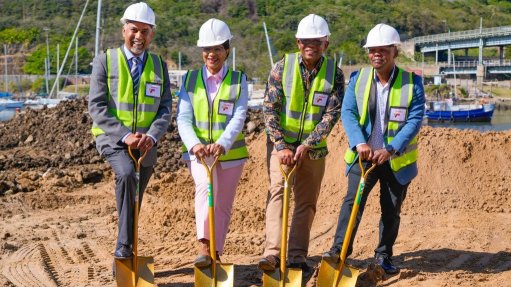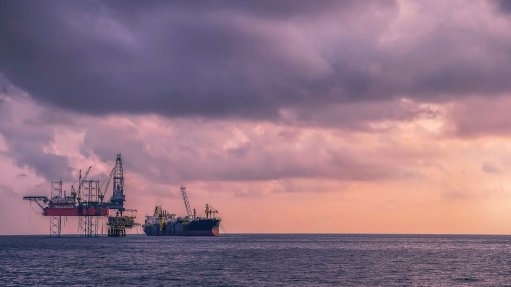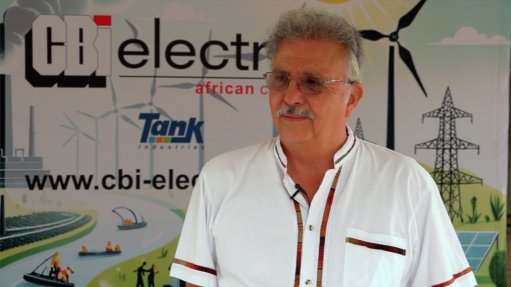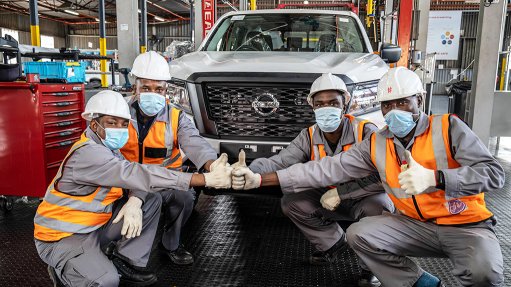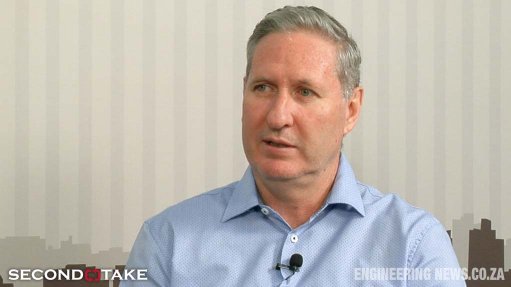Mpumalanga highlighted as centre of South Africa's just energy transition work
South Africa's transition to a sustainable energy ecosystem must also be just, with any negative impacts, such as the loss of jobs in coal mining and at coal-fired power stations in the surrounding communities, mitigated or addressed.
The Mpumalanga province, owing to abundant coal reserves, emerged as the epicentre of the country's power generation and South Africa's industrial development has been heavily reliant on coal for its energy needs, said Mpumalanga Premier Mandla Ndlovu in a prepared speech delivered by Mpumalanga Economic Development and Tourism MEC Makhosazane Masilela.
Coal dominated South Africa's energy mix, and Mpumalanga contributed up to 80% of its coal-fired capacity. However, the environmental and health implications of coal-fired power plants cast a shadow over the region, necessitating a transition to a more sustainable alternative, said Ndlovu.
"Mpumalanga is synonymous with towering chimneys and coal-fired power plants but is undergoing a metamorphosis as a pivotal player in South Africa's renewable-energy landscape.
"The province has the necessary infrastructure to ensure a transition with its existing grid," he said.
The aim of the National Development Plan is for South Africa to be an environmentally sustainable society by 2030. This will improve climate-change resilience and see an expanded low-carbon economy and reduced emissions.
"Solar and wind energy, in particular, are driving the transition shift. This aligns with global trends that emphasise clean and sustainable energy solutions to address climate change."
The Integrated Resource Plan (IRP) 2019 included a diverse range of energy resources, including coal, gas, wind, solar, hydrogen and storage, with the proportion of coal power set to decline and the proportion of renewables to increase, said Ndlovu.
However, there have also been several developments in the electricity industry since the promulgation of the IRP 2019, including the establishment of multistakeholder body the Presidential Climate Commission (PCC), which advises on the country's climate-change responses and pathways to a low-carbon, climate-resilient economy and society.
"One of the main outputs of the PCC was the development of the Just Energy Transition (JET) framework, and the subsequent inter-Ministerial committee for the JET developed the JET Investment Plan, or JET-IP.
"Subsequent to this, the country also developed an implementation roadmap to 2027, which sets out the scale and investments needed to achieve decarbonisation in line with South Africa's Nationally Determined Contribution.
"With available land adjacent to existing coal-fired power plants, the province is an ideal location for renewable-energy projects. A promising example is [coal and energy minerals mining company] Seriti's Ummbila Emoyeni wind energy cluster project, of which the first phase 155 MW wind farm should be completed in the second quarter of 2026," Ndlovu said.
"The shift is also illustrated by other large energy users, such as [chemicals and energy company] Sasol and [industrial and specialty gases company] Air Liquide that partnered with [wind energy developer] Red Cap Energy to develop a 330 MW wind cluster in Mpofu, with the power to be wheeled over the grid to their operations in Mpumalanga."
Achieving a just transition was a key focus for the province, and communities that were dependent on high-emitting coal industries must be supported during the shift to renewable energy, Ndlovu said.
"We are committed to the ideals of the JET. We emphasise the just part and the importance of not leaving anyone behind."
INTERNATIONAL SUPPORT
Mpumalanga and South Africa are receiving support from local and international partners, which is helping to build the institutional capacity and develop innovative and meaningful projects that are key to unlocking the green economic opportunities in the province.
"When managed effectively, the JET can drive significant creation of new and better jobs, promote social justice, contributing to poverty eradication and the upskilling of individuals in the workforce with the skills necessary for the emerging green industries," said Ndlovu.
Representatives from the EU, France, Germany and the UK, during the JET stakeholder dialogue held in eMalahleni, on October 9, presented some of the projects that these countries were involved with in South Africa to drive its JET.
"France is committed to the JET, and projects to define and plan economic diversification strategies in the context of a coal phase-out are being piloted in Mpumalanga," said Ambassador of France to South Africa David Martinon.
Martinon was born in the Hauts-de-France region, which provided France with coal mined from the Nord-Pas-de-Calais Mining Basin.
"The whole economy of this province was based on coal mining and it was a long and complex process to transition to a different economic base.
"Phasing out coal in Europe was a long and complex process, and this will be similar in South Africa and other coal-dependent countries. This is why we have committed to accompanying South Africa during the process alongside the UK, US, Netherlands, Germany and Denmark.
"We are here to support South Africa's national, provincial and local government, but the way we approach the transition must be just.
"No country must choose between fighting poverty or climate change," he said.
Nevertheless, the energy transition was imperative for South Africa, as it was for the Hauts-de-France region, because the economic and social consequences of coal were worrying, he added.
Air pollution associated with coal use damages the health of those living in neighbouring areas. A second negative impact is the amount of water coal mining and coal-fired power uses, which is problematic for water-scarce Africa and South Africa in particular.
A third worrying economic and social consequence was that coal was finite and the industry and the jobs it supported were not sustainable, especially because markets and consumer demands had changed, said Martinon.
France has supported the South African government for several years, including a €300-million loan to National Treasury.
The country was in the final stages of a second loan to the South African Treasury that would enable government to focus on the 'just' dimension of the energy transition, he added.
Article Enquiry
Email Article
Save Article
Feedback
To advertise email advertising@creamermedia.co.za or click here
Comments
Press Office
Announcements
What's On
Subscribe to improve your user experience...
Option 1 (equivalent of R125 a month):
Receive a weekly copy of Creamer Media's Engineering News & Mining Weekly magazine
(print copy for those in South Africa and e-magazine for those outside of South Africa)
Receive daily email newsletters
Access to full search results
Access archive of magazine back copies
Access to Projects in Progress
Access to ONE Research Report of your choice in PDF format
Option 2 (equivalent of R375 a month):
All benefits from Option 1
PLUS
Access to Creamer Media's Research Channel Africa for ALL Research Reports, in PDF format, on various industrial and mining sectors
including Electricity; Water; Energy Transition; Hydrogen; Roads, Rail and Ports; Coal; Gold; Platinum; Battery Metals; etc.
Already a subscriber?
Forgotten your password?
Receive weekly copy of Creamer Media's Engineering News & Mining Weekly magazine (print copy for those in South Africa and e-magazine for those outside of South Africa)
➕
Recieve daily email newsletters
➕
Access to full search results
➕
Access archive of magazine back copies
➕
Access to Projects in Progress
➕
Access to ONE Research Report of your choice in PDF format
RESEARCH CHANNEL AFRICA
R4500 (equivalent of R375 a month)
SUBSCRIBEAll benefits from Option 1
➕
Access to Creamer Media's Research Channel Africa for ALL Research Reports on various industrial and mining sectors, in PDF format, including on:
Electricity
➕
Water
➕
Energy Transition
➕
Hydrogen
➕
Roads, Rail and Ports
➕
Coal
➕
Gold
➕
Platinum
➕
Battery Metals
➕
etc.
Receive all benefits from Option 1 or Option 2 delivered to numerous people at your company
➕
Multiple User names and Passwords for simultaneous log-ins
➕
Intranet integration access to all in your organisation






